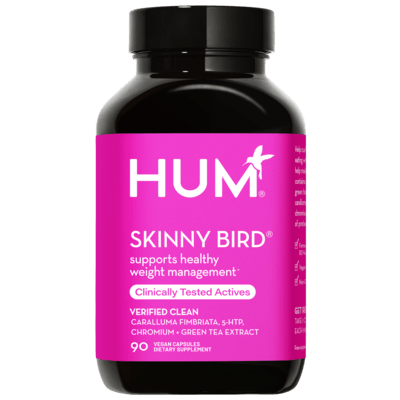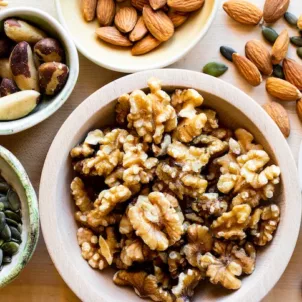In this article we uncover the truth about berberine, a.k.a nature’s Ozempic. Explore the origins of berberine, its potential benefits, and its comparison to the popular diabetes medication. Gain a deeper understanding of this trending natural ingredient and its effectiveness in promoting overall health and well-being.
In the past several weeks there has been a buzz on social media about “nature’s Ozempic”. Let’s unpack the science of berberine- how it works, the state of the research, if there any berberine benefits and what they might be, side effects and contraindications, and how it compares to diabetes and weight loss medications.

What is Berberine?
Berberine is a natural alkaloid component that is found in a variety of plants, including Berberis aristrata (tree turmeric), Berberis vulgaris (barberry), goldenseal plants, and even the California poppy (Eschscholzia californica). It has a long history of use for various health conditions in traditional Chinese and Ayurvedic medicine.
It started to gain the attention of researchers in the 1980s in China where it was used to treat type 2 diabetes.
(Type 2 diabetes is a metabolic disorder characterized by reduced insulin production or insulin resistance and can be managed by a combination of oral medications, lifestyle changes or insulin injections. Type 1 diabetes is an autoimmune disease where the body no longer produces insulin, requiring lifelong insulin injections.)
Ozempic and similar prescription medications have also seen a massive spike in interest and attention lately, thanks to celebrities and people seeing transformative weight loss results. This interest has likely pushed people to look for alternatives.
Potential Benefits of Berberine
Let’s dig into the research on berberine and what it does.
A comprehensive review of the berberine clinical study literature and meta-analysis was published in October 2022, reviewing the efficacy of berberine supplementation on a variety of cardiovascular disease risk factors. The authors reviewed 49 clinical trials and pooled the results to look at them in totality.
They found that berberine use was associated with decreases in systolic blood pressure, weight, BMI, triglycerides, total cholesterol, fasting blood glucose, insulin, and hemoglobin A1C (a measure of average blood glucose over the past 3 months). The average amount of weight loss was quite small, an average of 1.85 pounds across all studies, doses and time points. However, many of the results only occurred in people that had room for weight or metabolic improvements.
For example, only studies with people who had elevated fasting blood sugar had improvements in blood sugar. Study participants with normal BMI (18.5-24.90) showed that berberine supplementation was ineffective for improving triglycerides, total cholesterol, LDL, HDL, insulin, blood pressure, weight, BMI or waist circumference. Only two of the studies included in the review evaluated people with normal BMI ranges and no health conditions, and it showed no effect or the placebo was superior.
The results also show that longer duration was required to see results. Most studies were at least 8 weeks long with most showing results occurring around 12 weeks.
When it comes to blood sugar control, a metanalysis of 14 studies evaluated berberine in people with type 2 diabetes. They compared berberine supplementation to oral diabetes medications, and unsurprisingly, the prescription medications were superior to glycemic control. When berberine is combines with lifestyle modifications, there are some benefits to improving fasting, post-meal and HgbA1C.
A short term placebo-controlled study showed that there is no improvement in insulin or glucose levels in healthy adults who took 4 doses of berberine with 4 meals over 2 days (500mg each time). No changes were seen, leading the authors to conclude that berberine at 500mg doses taken with meals does not affect glucose or insulin in healthy (i.e., glucose tolerant and normal BMI) adults.
Overall, while there are many published studies evaluating berberine, many of the studies were found to be at high-risk for bias and there was a lot of inconsistency in the outcomes. The meta-analysis by Zamani et al concluded that the quality of the evidence was overall low for studies evaluating efficacy for affecting lipids, glucose, insulin and blood pressure outcomes, and moderate for weight and BMI outcomes.

Comparing Berberine to Ozempic
It’s important to keep in mind that berberine’s used as a dietary supplement and is regulated accordingly by the FDA in the United States. This means that there is no approval or evaluation of the efficacy of the product, but it does need to comply with laws and regulations around proper labeling and manufacturing (per the Federal Food, Drug and Cosmetic Act).
Ozempic and its sister medication Wegovy are prescription-only medications and were subject to rounds of research and clinical testing before they were approved by the FDA for certain uses. Ozempic and Wegovy are brand names for the same drug, called semaglutide. Wegovy is a higher dose version of Ozempic and is specifically approved by the FDA for people who have elevated BMI and other metabolic health problems like high blood pressure, diabetes or high cholesterol.
Ozempic, on the other hand, is approved by the FDA to manage type 2 diabetes and is prescribed by a doctor to be taken as a once-weekly injection that (along with diet and exercise) helps lower blood sugar. Semaglutide mimics a hormone in the body called glucagon-like peptide-1 (GLP-1) which also targets areas of the brain that regulate appetite. It works in 3 ways to decrease blood sugar- increasing insulin production, blocking release of stored glucose from the liver, and slowing down food leaving your stomach (this slowing down also helps people to feel fuller).
Although Ozempic is not approved by the FDA as a weight-loss drug, in 2 studies of adults with type 2 diabetes, participants taking Ozempic lost around 8 pounds over 30 weeks and an average of 15 pounds in a 40 week study of a higher dose. This weight loss remained for people who continued taking it in a longer term study for two years.
Berberine works in the body via different mechanisms than insulin or GLP-1 agonists like Ozempic. Studies in animal models suggest that it plays a role in regulating adipose tissues, increasing mitochondrial sirtuin activity, normalizing mitochondrial function, activating AMP-activated protein kinase, inhibiting fat storage, and activating glucose transporter 1 (GLUT1).
Two systematic reviews (study 1, study 2) of effect on BMI and weight concluded similar results. Berberine in doses of 1000-1500mg per day appears to have small effect on decreases in body weight (0.5-4.5 pounds) when taken for at least 3 months.
Does Berberine Work?
Berberine may be helpful to manage metabolic concerns and weight in people in need of those outcomes. Based on the clinical studies, taking 1000 to 1500mg per day (usually divided into 2 or 3 times per day) appears to be the most effective.
It is important before starting berberine or any supplement to not stop prescription medications and speak with your medical provider before as there may be side effects of contraindications to be aware of. In particular, there are interactions with drugs, including: cyclosporine, dextromethorphan, losartan, medications changed by the liver, diabetes medications, blood pressure medications, metformin, versed, phenobarbital, sedative medications, and prograf. People who are pregnant or breastfeeding should not take berberine. There are some side effects reported in clinical studies, including diarrhea, constipation, gas and upset stomach.
Conclusion
The research on berberine is promising and supportive of an effect on helping with healthy glucose levels, cholesterol, and weight management. It cannot be compared to Ozempic or other prescriptions as it works via different mechanisms in the body and the research is mixed on just how impressive the results are from taking it. Berberine does not provide the big improvements in glucose management and weight that are see in Ozempic or Wegovy.
There is also no research evaluating any effect if berberine supplementation is stopped; it is most likely that the body will revert unless lifestyle modifications have been made.
As a dietary supplement, berberine has been very well researched (although not all the studies are of the best quality) and consistently shows benefits in people with metabolic dysfunctions that can make a difference in their overall health, making it a potential treatment for supporting a health journey. As always, speak to your health care provider first for professional medical advice to evaluate if berberine is a good option for you to try.









